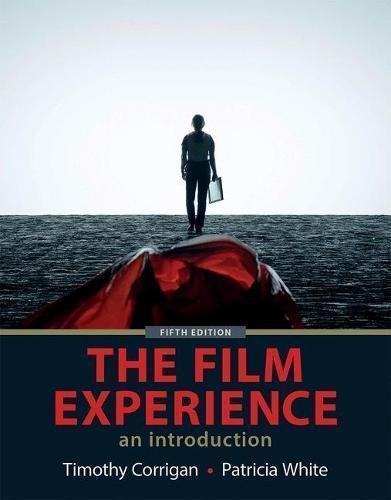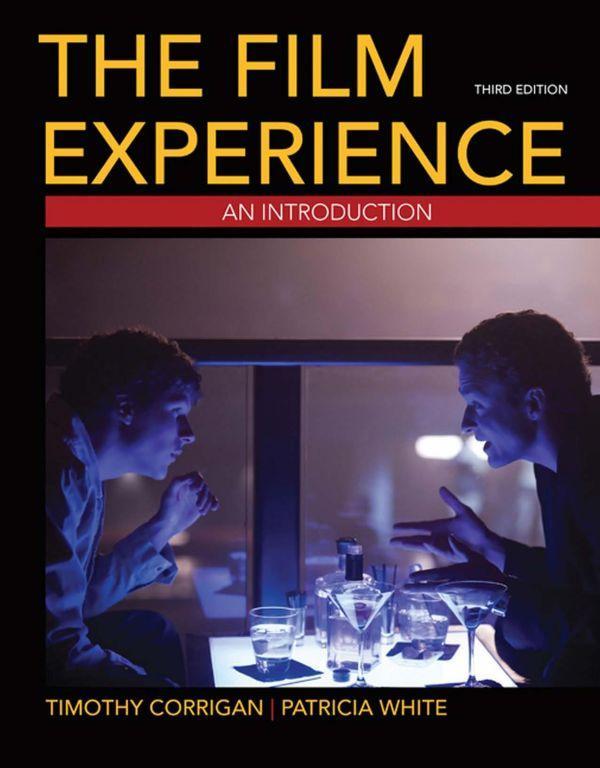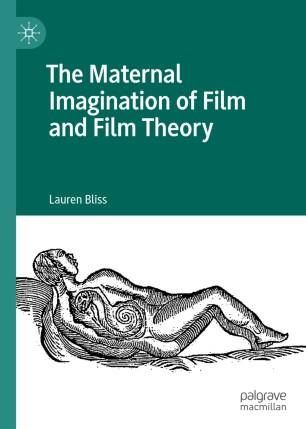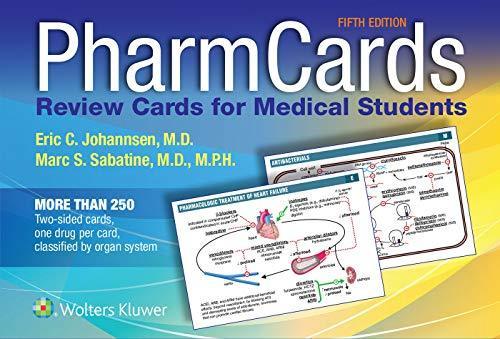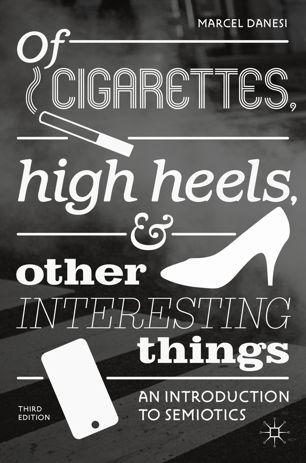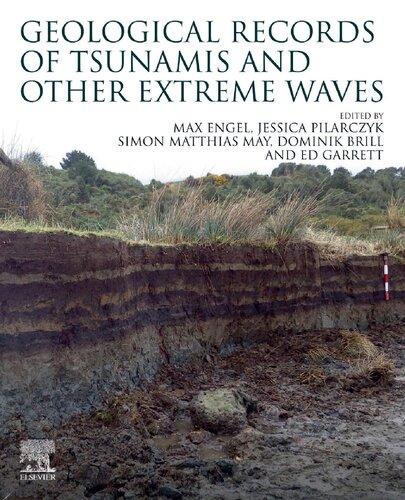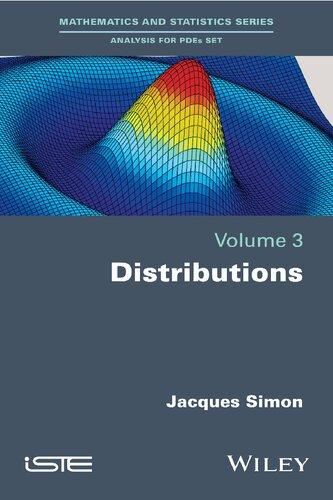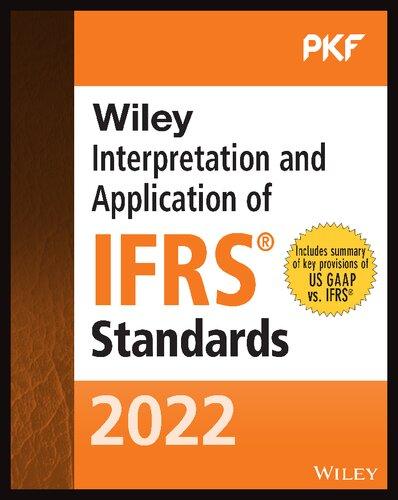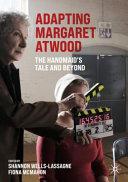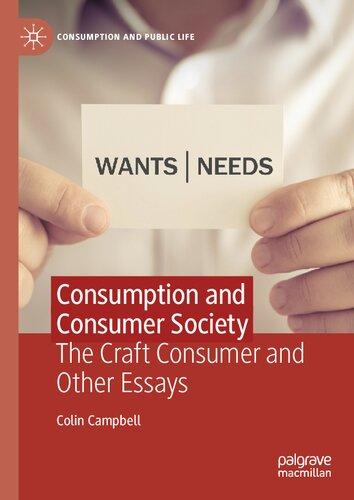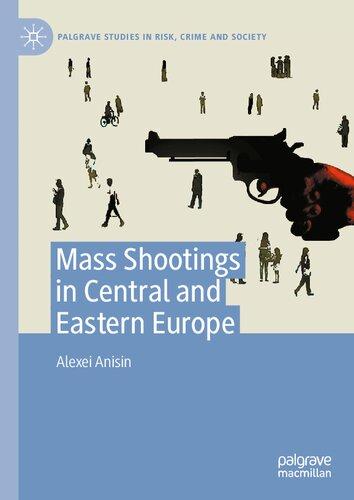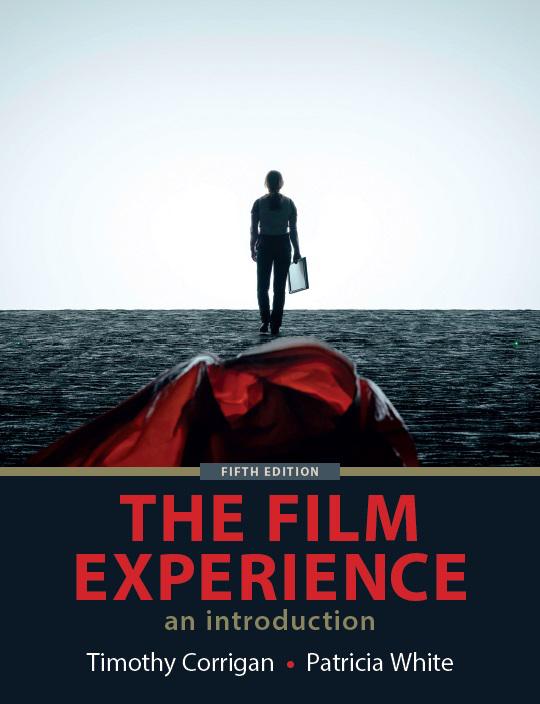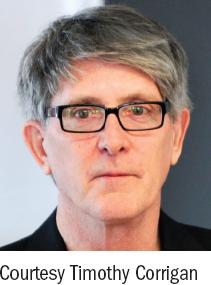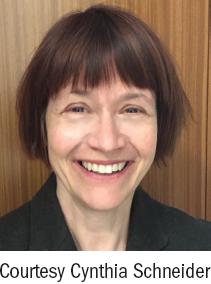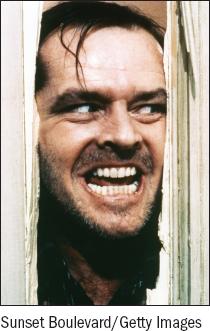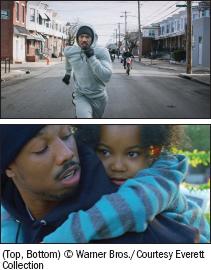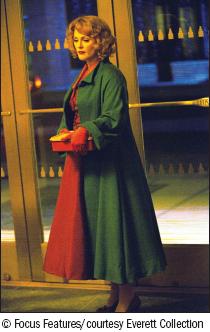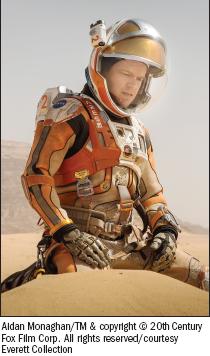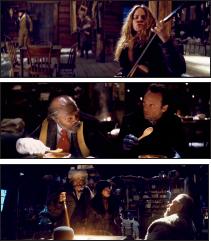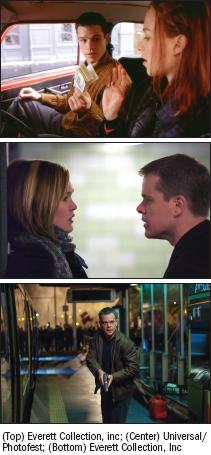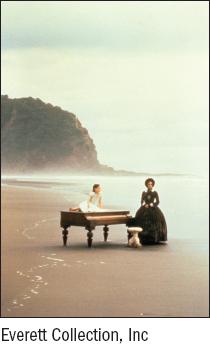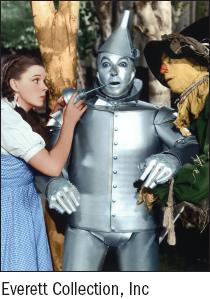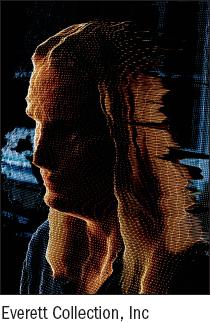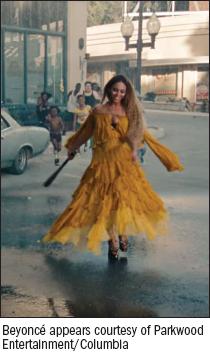About the Authors
TimothyCorriganisaprofessor of Englishandcinemastudiesat the Universityof Pennsylvania.Hisother booksinclude New German Film: The Displaced Image (IndianaUP); The Films of Werner Herzog: Between Mirage and History (Routledge); Writing about Film (Longman/Pearson); A Cinema without Walls: Movies and Culture after Vietnam (Routledge/RutgersUP); Film and Literature: An Introduction and Reader (Routledge); Critical Visions in Film Theory: Classical and Contemporary Readings (Bedford/St.Martin’s),withPatriciaWhiteandMetaMazaj; American Cinema of the 2000s (RutgersUP); and The Essay Film: From Montaigne, After Marker (OxfordUP),winner of the2012Katherine Singer KovácsAwardfor theoutstandingbookinfilm andmediastudies. Hehaspublishedessaysin Film Quarterly, Discourse,and Cinema Journal,amongother collections,andisalsoaneditor of thejournal Adaptation andaformer editorial boardmember of Cinema Journal.In
2014,hereceivedtheSocietyfor CinemaandMediaStudiesAwardfor OutstandingPedagogical Achievement.
PatriciaWhiteisEugeneLangResearchProfessor of Film andMedia Studiesat SwarthmoreCollege.Sheistheauthor of Women’s Cinema/World Cinema: Projecting Twenty-first Century Feminisms (Duke UP) and Uninvited: Classical Hollywood Cinema and Lesbian Representability (IndianaUP).Her essayshaveappearedinjournals including Camera Obscura, Cinema Journal, Film Quarterly,and Screen, andinbooksincluding A Feminist Reader in Early Cinema, Out in Culture,and The Routledge Companion to Cinema and Gender.Sheis coeditor withTimothyCorriganandMetaMazaj of Critical Visions in Film Theory: Classic and Contemporary Readings (Bedford/St.Martin’s). Sheisamember of theeditorial collectiveof thefeminist film journal Camera Obscura.Sheservesontheboardof thefeminist distributor and mediaorganizationWomenMakeMoviesandtheeditorial boardof Film Quarterly.
Preface
Inour culture,movieshavebecomeanear-universal experience,evenas their deliverymethodshaveexpandedandchanged.Whether watching thenewest Star Wars adventurewithapackedcrowdor AcademyAward— winner Moonlight (2016) at adowntownarthouse,or catchingupwith classicsor oldfavoritesonastate-of-the-art TVset or portabletablet,we all haveexperiencedthepleasuresthat moviescanbring.Thefilm experiencecanbeginwithjourneyingtoimaginaryworlds,witnessingrecreationsof history,observingstarsinfamiliar andunfamiliar roles,and exploringthelaughter,thrills,or emotionsof different genres. Understandingthefull depthandvarietyof theseexperiences,though, requiresmorethanjust initial impressions.
Thisbookaimstohelpstudentslearnthelanguagesof film and synthesizethoselanguagesintoacohesiveknowledgeof themedium that will,inturn,enhancetheir moviewatching. The Film Experience: An Introduction offersreadersaserious,comprehensiveintroductiontothe art,industry,culture,and experience of movies—alongwiththe interactive,digital toolsandexamplestobringthat experiencetolife.
Asmoviefansourselves,webelievethat thecompletefilm experience comesfrom understandingboththeformal andcultural aspectsof cinema. Knowinghowfilmmakersusethefamiliarityof star personas,for example,canbeasvaluableandenrichingasunderstandinghowa particular editingrhythm createsaspecificmood. The Film Experience buildsonformal knowledgeandcultural contextstoensurethat students gainawell-roundedabilitytoengageincritical analysis.Thenewfifth
editionisbetter equippedthanever tomeet thischallenge,withthebest art program inthiscourse,anewlyrevisedchapter about film historyand accompanyingHistoryClose-Upboxes,andnewvideoclipsand discussionquestionsthat bringavarietyof cinematicconceptstolife.The learningtoolswehavecreatedhelpstudentsmakethetransitionfrom moviefantocritical viewer,allowingthem tousetheknowledgethey acquireinthiscoursetoenrichtheir movie-watchingexperiences throughout their lives.
The Best Coverage of Film’s Formal Elements
Webelievethat comprehensiveknowledgeof film practicesand techniquesallowsstudentsadeeper andmorenuancedunderstandingof film meaning.Goingbeyondmeredescriptionsof thenutsandboltsof film form, The Film Experience highlightshowformal elementslike cinematography,editing,andsoundcanbeanalyzedandinterpretedwithin thecontext of afilm asawhole—formal studiesmadeevenmorevivid byour suiteof onlinefilm clips.
Inchoosingour text andvideoexamples,wedrawfrom thewidest varietyof moviesinanyintroductorytext,demonstratinghowindividual formal elementscancontributetoafilm’slarger meaning.Weunderstand theimportanceof connectingwithstudentsthroughfilmstheymay alreadyknow,andwehaveaddednewexamplesreferringtorecent films like La La Land, Hidden Figures, Ex Machina, Creed, Moonlight, Gone Girl,and Star Wars: The Force Awakens.Wealsofeel that it isour responsibilitytohelpstudentsunderstandtherichvarietyof movies throughout history,utilizingclassicslike The Jazz Singer, Citizen Kane, Touch of Evil, Bonnie and Clyde, The Godfather,and Chinatown,aswell as awealthof experimental,independent,andinternational films.
Fully Encapsulating the Culture of Film
Inadditiontoastrongfoundationinfilm form,knowledgeof thenature andextent of film cultureanditsimpact onour viewingexperiencesis necessaryfor atrulyholisticunderstandingof cinema.Oneof thepillars of The Film Experience storyhasalwaysbeenitsfocusontherelationship
amongviewers,movies,andtheindustry.Throughout,thebookexplores howtheseconnectionsareshapedbythesocial,cultural,andeconomic contextsof filmsthroughincisivediscussionsof suchtopicsasthe influenceof thestar system,themarketingstrategiesof indiesversus blockbusters,andthemultitudeof reasonsthat wearedrawntosomefilms over others.That discussioncontinuesinthisneweditionwithadditional emphasisonhowthemedium’shistoryinformsthewayswewatchmovies today.
New to This Edition
Thankstothevaluablefeedbackfrom our colleaguesandfrom our own students,inthisneweditionwehaveenhanced The Film Experience’s coverageof film history.Asever, The Film Experience continuestobethe best at representingtoday’sfilm culture—withcutting-edgeinclusionof topicslike3-Dtechnology,digital distribution,andsocial media marketingcampaigns.
A Heavily Revised Chapter 2 on History
Our chapter onhistoryandhistoriographyhasbeenreconfiguredand relocatedinthetext,nowplacedinPart 1sothat it canbetter provide valuablebackgroundfor thechaptersthat follow.Thehistorycoveragehas beenupdated,streamlined,andmademorerelevant tothechaptersthat follow,providinganoverviewthat deepenswhenthebooklater introduces historical informationabout editing,cinematography,sound,andother elementsof film form.
History Close Up Boxes Highlight Underrepresented Groups
Several chaptersnowincludeHistoryCloseUpboxesthat continuethe conversationabout howfilm historyinteractswithcontemporaryfilm culture,spotlightingwomenandpeopleof color,aswell asfilmsand practicesthat havebeenunderacknowledgedinmoretraditional historical narratives.Theseboxesremindstudentsthat not everyimportant figurein
thedevelopment of thismedium iswell knownandthat diversityand inclusioncontinuetobemajor issuesintoday’sfilm landscape.
LaunchPad Solo for The Film Experience with More Text and Video Than Ever
The Film Experience goesfurther withLaunchPadSolo,our online platform andhometonumerousmovieclips,videoessays,discussion questions,andmore—perfect for interactivelearning.Bringingprint and digital together,theViewingCuefeatureinthemarginsof eachchapter directsstudentstofilm clipsof bothclassicandcontemporaryfilms availableonlineinLaunchPadSolofor The Film Experience.Morethana dozennewclipshavebeenaddedfor thefifthedition,all accompaniedby thought-provokingdiscussionquestions.LaunchPadSoloalsoincludes manyadditional,exclusiveFilm inFocusandForm inActionboxesnot availableintheprint edition,includingboxeswrittenespeciallyfor this neweditiononline.TheLaunchPadSoloplatform makesit easytoassign thevideos,readings,andquestions,andbecauseall studentswill have accesstothesameclipsandactivities,classroom conversationscanstart from acommonground.AccesstoLaunchPadSolofor The Film Experience canbepackagedwiththebookor purchasedonitsown.
New Examples Enhance the Strongest Art Program Available
Eachgenerationof studentsthat takestheintroductorycourse(from eighteen-year-oldfirst-year studentstoreturningadults) isfamiliar with itsownrecent historyof themovies.Hence,wehaveupdatedthisedition withanumber of newexamplesthat reflect thediversestudent body— Hollywoodblockbusterssuchas Deadpool, Inside Out,and Furious 7; independent farelike Ex Machina, Carol,and Moonlight; andpopular international filmslike Persepolis, PK,and Oldboy.
Proven Learning Tools That Foster Critical Viewing and Analysis
The Film Experience transformsstudentsfrom moviebuffstocritical viewersbygivingthem thehelptheyneedtotranslatetheir movie experiencesintotheoretical knowledgeandanalytical insight.Our host of learningtoolsincludesthefollowing:
■ Chapter-openingvignettesplacestudentsinsideafilm.Each compellingvignette,manyof them newtothisedition,drawsfrom actual scenesinareal movietoconnect what studentsknowasmovie fanstokeyideasinthechapter’sdiscussion.For example,Chapter 1 openswithacontrast betweenfilmmaker RyanCoogler’sprojects Fruitvale Station and Creed,illustratingthedifferent scopes,scales, andframesof referencefor contemporaryfilmmaking.
■ Film inFocusessaysineachchapterprovidecloseanalysesof specificfilms,demonstratinghowparticular techniquesor concepts inform andenrichthosefilms.For example,adetaileddeconstruction inChapter 4of theeditingpatternsin Bonnie and Clyde showshow theycreatespecificemotional andvisceral effects.
■ Form inActionboxeswithimage-by-imageanalysesinthenine chaptersonform andorganizationgivestudentsacloselookat howthe formal conceptstheyreadabout translateonscreen.Withseveral new additions—includingalookat themise-en-scèneof aMartinScorsese film,ananalysisof arecent movietrailer,andanexaminationof the internationallyacclaimed In the Mood for Love —eachForm inAction essaybringskeycinematictechniquesaliveandteachesstudentshow toreadanddissect afilm formally.
■ Marginal ViewingCuesadjacent tokeydiscussionsinthechapter highlightingkeyconceptsprompt studentstoconsider theseconcepts whileviewingfilmsontheir ownor inclass—andtovisit our online cliplibraryfor somespecificexamples.
■ Thebest instructiononwritingabout film andthemost student writingexamplesof anyintroductorytext areofferedthroughout. Praisedbyinstructorsandstudentsasakeyreasontheylovethebook, Chapter 12,“WritingaFilm Essay: Observations,Arguments, Research,andAnalysis,”isastep-by-stepguidetowritingpapersabout film —takingnotes,choosingatopic,developinganargument, incorporatingfilm images,andcompletingapolishedessay.It includes
several annotatedstudent essaysandnewcoverageof creatingvideo essays,exploringapopular newformat for film analysis.
Resources for Students and Instructors
Tofindmoreinformationonthestudent resourcesor tolearnmoreabout packageoptions,pleasevisit theonlinecatalogat macmillanhighered.com/filmexperience/catalog.
■ For studentsandinstructors: LaunchPadSolofor The Film Experience at bedfordstmartins.com/filmexperience
Availablepackagedwith The Film Experience or purchasedseparately, LaunchPadSolofeaturesacollectionof short videos,includingboth film clipsanduniqueannotatedvideoessaysdesignedtogivestudents adeeper lookat important film conceptscoveredinthetext.The videosfurther thediscussionsinthebookandbringthem vividlyto life.Thevideosaregreat asin-classlecturelaunchersor asmotivators for studentstoexplorekeyfilm conceptsandfilm historyfurther.
■ For instructors: theOnlineInstructor’sResourceManual byJohn Bruns,Collegeof Charleston
ThedownloadableInstructor’sResourceManual recommendsmethods for teachingthecourseusingthechapter-openingvignettes,the ViewingCues,andtheFilm inFocusandForm inActionfeatures.In addition,it offersteachingaidslikechapter overviews,questionsto generateclassdiscussion,ideasfor encouragingcritical andactive viewing,sampletest questions,andsamplesyllabi.Instructorswho haveadoptedLaunchPadSolofor The Film Experience canfindafull instructor sectionwithinLaunchPadSolothat includestheInstructor’s ResourceManual andPowerPoint presentations.
Print and Digital Formats
For moreinformationontheseformatsandpackaginginformation,please visit theonlinecatalogat macmillanhighered.com/filmexperience/catalog.
LaunchPadSoloisadynamicnewplatform that dramatically enhancesteachingandlearning.LaunchPadSolofor The Film
Experience collectsvideos,activities,quizzes,andinstructor’sresources onasinglesiteandoffersastudent-friendlyapproach,organizedfor easy assignabilityinasimpleuser interface.Instructorscancreatereading, video,or quizassignmentsinseconds,aswell asembedtheir ownvideos or custom content.Agradebookquicklyandeasilyallowsinstructorsto reviewtheprogressfor awholeclass,for individual students,andfor individual assignments,whilefilm clipsandvideosenhanceeverychapter of thebook.LaunchPadSolocanbepackagedwith The Film Experience or purchasedonitsown.Learnmoreat LaunchPadWorks.com.
The Film Experience isavailableasaprint text.Toget themost out of thebookandgainaccesstotheextensivevideoprogram,consider packagingLaunchPadSolowiththetext.
Theloose-leaf editionof The Film Experience featuresthesame print text inaconvenient,budget-pricedformat,designedtofit into anythree-ringbinder.Consider packagingLaunchPadSolowiththe loose-leaf edition.
Thee-bookfor The Film Experience includesthesamecontent as theprint bookandprovidesanaffordable,tech-savvyPDFe-book optionforstudents.Instructorscancustomizethee-bookbyaddingtheir owncontent anddeletingor rearrangingchapters.
Acknowledgments
Abookof thisscopehasbenefitedfrom thehelpof manypeople.Ahost of reviewers,readers,andfriendshavecontributedtothisedition,and TimothyCorriganisespeciallygrateful tohisstudentsandhisUniversity of PennsylvaniacolleaguesKarenRedrobe,Peter Decherney,Nicola Gentili,andMetaMazaj for their hands-onandprecisefeedbackonhowto makethebest bookpossible.PatriciaWhitethanksher colleaguesinFilm andMediaStudiesat Swarthmore,BobRehakandSunkaSimon; Helen Leeandthemanycolleaguesandfilmmakerswhohaveofferedfeedback; andher studentsandassistants,especiallyRobert Alford,MaraFortes, WillaKramer,BrandyMonk-Payton,andNatanVegaPotler. Instructorsthroughout thecountryhavereviewedthebookandoffered their advice,suggestions,andencouragement at variousstagesof the project’sdevelopment.For thefiftheditioninparticular,wewouldliketo thankBrookeBelisle,StonyBrookUniversity; DavidA.Brewer,TheOhio
StateUniversity; BryanBrown,NorthernVirginiaCommunityCollege; LeslieChilton,ArizonaStateUniversity; Janet Cutler,Montclair State University; IsabelleFreda,HofstraUniversity; KristenHatch,University of California,Irvine; HughManon,ClarkUniversity; JohnMacKay,Yale University; AliceMaurice,Universityof Toronto—Scarborough; Lucinda McNamara,CapeFear CommunityCollege; JoshuaShepperd,The CatholicUniversityof America; andLisaStokes,SeminoleStateCollege of Florida.
At Bedford/St.Martin’s,wethankErikaGutierrez,senior program director for communication,for her belief inandsupport of thisproject from theoutset,aswell assenior development manager Susan McLaughlinandvicepresident for humanitiesEdwinHill for their support aswedevelopedthefifthedition.Weareespeciallygrateful tosenior developmental editor JesseHassenger for guidinguswithpatienceand goodhumor throughout multipleeditionsof thisproject.Hisgreat knowledgeof andpassionfor themovieshasbenefitedthebook immensely.WeareindebtedtophotoresearchersKerri WilsonandTerri Wright andtoTayarishaPoeandLoganTiberi-Warner for all their work capturingimages: theart program wasatremendousundertaking,andthe resultsarebeautiful.ThankstoPeter Jacoby,senior content project manager,andLisaMcDowell,senior workflowmanager,for their diligent workonthebook’sproduction.WealsothankJerilynBockorickfor overseeingthedesignandBillyBoardmanfor abeautiful newcover. ThanksalsogotoKayti Corfield,marketingmanager; SarahO’Connor, mediaproject manager; andMaryJaneChen,assistant editor.
Weareespeciallythankful toour families—MarciaFergusonand Cecilia,Graham,andAnnaCorrigan; GeorgeandDonnaWhite,Cynthia Schneider,andMaxSchneider-White.Finally,wearegrateful for the growthof our writingpartnershipandfor therichexperiencesthis collaborativeeffort hasbrought us.Welookforwardtoongoingprojects.
Timothy Corrigan
Patricia White
Brief Contents
Preface
PART 1 CULTURAL CONTEXTS: Watching,Studying, and Making Movies
INTRODUCTION Studying Film: Culture and Experience
CHAPTER 1 Encountering Film: From Preproduction to Exhibition
CHAPTER 2 History and Historiography: Hollywood and Beyond
PART 2 FORMAL COMPOSITIONS: FilmScenes, Shots,Cuts,and Sounds
CHAPTER 3 Mise-en-Scène: Exploring a Material World
CHAPTER 4 Cinematography: Framing What We See
CHAPTER 5 Editing: Relating Images
CHAPTER 6 Film Sound: Listening to the Cinema
PART 3 ORGANIZATIONAL STRUCTURES: From Stories to Genres
CHAPTER 7 Narrative Films: Telling Stories
CHAPTER 8 Documentary Films: Representing the Real
CHAPTER 9 Experimental Film and New Media: Challenging Form
CHAPTER 10 Movie Genres: Conventions, Formulas, and Audience Expectations
PART 4 CRITICAL PERSPECTIVES: Reading and Writing about Film
CHAPTER 11 Reading about Film: Critical Theories and Methods
CHAPTER 12 Writing a Film Essay: Observations, Arguments, Research, and Analysis
Glossary Index
The Next Level: Additional Sources
Preface
PART 1
CULTURALCONTEXTS: watching, studying,andmakingmovies
INTRODUCTION Studying Film: Culture and Experience
WhyFilmStudiesMatters
FilmSpectatorsandFilmCultures
FORM IN ACTION: Identification,Cognition,andFilmVariety
TheFilmExperience
Conceptsat Work
CHAPTER 1
Encountering Film: FromPreproduction to Exhibition
Production: How FilmsAreMade
Preproduction
Production
Postproduction
Distribution: What WeCanSee
Distributors
AncillaryMarkets
DistributionTiming
MarketingandPromotion: What WeWant toSee
GeneratingInterest
FILM IN FOCUS: Distributing Killer of Sheep (1977)
Advertising
FORM IN ACTION: TheChangingArt andBusinessof theFilm
Trailer
VIEWING CUE: Suicide Squad (2016)
Wordof MouthandFanEngagement
MovieExhibition: TheWhere,When,andHow of Movie Experiences
TheChangingContextsandPracticesof Film Exhibition
TechnologiesandCulturesof Exhibition
TheTimingof Exhibition
FILM IN FOCUS: Exhibiting Citizen Kane (1941)
Conceptsat Work
CHAPTER 2 History and Historiography: Hollywood and Beyond
Silent Cinema
Silent FeaturesinHollywood
GermanExpressionist Cinema
Soviet Silent Films
FrenchCinema
HISTORY CLOSE UP: Oscar Micheaux
ClassicalCinemainHollywoodandBeyond
EuropeanCinemainthe1930sand1940s
GoldenAgeMexicanCinema
Postwar Cinemas(1945–1975)
Postwar Hollywood
International Art Cinema
VIEWING CUE: Gilda (1946) and Rome, Open City (1945)
CinematicGlobalization(1975–2000)
NewHollywoodintheBlockbuster Era
FILM IN FOCUS: Taxi Driver andNew Hollywood(1976)
TheCommercial Auteur
AmericanIndependent Cinema
From National toTransnational CinemainEurope
AfricanCinema
ChineseCinema
IranianCinema
CinemaintheDigitalEra(2000–present)
Global Hollywood
DiversifyingScreens
Global Film CultureintheAgeof Streaming
VIEWING CUE: Beyond the Lights (2014)
FilmPreservationandArchives
FILM IN FOCUS: Rediscovering Within Our Gates (1920)
OrphanFilms
Conceptsat Work
PART 2
CHAPTER 3 Mise-en-Scène: Exploring a Material World
A Short Historyof Mise-en-Scène
Theatrical Mise-en-ScèneandthePrehistoryof Cinema
1900–1912: EarlyCinema’sTheatrical Influences
1915–1928: Silent CinemaandtheStar System
1930s–1960s: Studio-EraProduction
1940–1970: NewCinematicRealism
1975–Present: Mise-en-ScèneandtheBlockbuster
TheElementsof Mise-en-Scène
SettingsandSets
VIEWING CUE: Life of Pi (2012)
ScenicRealism andAtmosphere
Props,Costumes,andLights
VIEWING CUE: Boyhood (2014)
Performance: ActorsandStars
FILM IN FOCUS: Mise-en-Scènein Do the Right Thing (1989) SpaceandDesign
MakingSenseof Mise-en-Scène
FORM IN ACTION: Mise-en-Scènein Hugo (2011) DefiningOur PlaceinaFilm’sMaterial World InterpretiveContextsfor Mise-en-Scène
FILM IN FOCUS: NaturalisticMise-en-Scènein Bicycle Thieves (1948)
Conceptsat Work
CHAPTER 4 Cinematography: Framing What We See
A Short Historyof theCinematicImage
1820s–1880s: TheInventionof Photographyand thePrehistoryof Cinema 1890s–1920s: TheEmergenceandRefinement of Cinematography
1930s–1940s: DevelopmentsinColor,WideAngle,andSmall-GaugeCinematography
1950s–1960s: Widescreen,3-D,andNewColor Processes
1970s–1980s: CinematographyandExhibitionin theAgeof theBlockbuster
1990stothePresent: TheDigital Era
TheElementsof Cinematography
Pointsof View
Four Attributesof theShot
VIEWING CUE: Touch of Evil (1958)
FORM IN ACTION: Color andContrast inFilm
VIEWING CUE: Rear Window (1954)
VIEWING CUE: The Battle of Algiers (1967)
AnimationandSpecial Effects
HISTORY CLOSE UP: FloydNorman
MakingSenseof theFilmImage
DefiningOur RelationshiptotheCinematicImage InterpretiveContextsfor theCinematicImage
VIEWING CUE: Vertigo (1958)
FILM IN FOCUS: FromAnglestoAnimationin Vertigo (1958)
Conceptsat Work
CHAPTER 5
Editing: Relating Images
A Short Historyof FilmEditing 1895–1918: EarlyCinemaandtheEmergenceof Editing
1919–1929: Soviet Montage
HISTORY CLOSE UP: WomenintheEditingRoom
1930–1959: ContinuityEditingintheHollywood StudioEra
1960–1989: ModernEditingStyles
1990s–Present: EditingintheDigital Age
TheElementsof Editing
VIEWING CUE: Chinatown (1974) TheCut andOther Transitions
ContinuityStyle
VIEWING CUE: Tangerine (2015) EditingandTemporality
VIEWING CUE: The General (1927)
FORM IN ACTION: EditingandRhythmin Moulin Rouge! (2001) MakingSenseof FilmEditing
FILM IN FOCUS: Patternsof Editingin Bonnie and Clyde (1967) DisjunctiveEditing
ConvergingEditingStyles
Conceptsat Work
CHAPTER 6 FilmSound: Listening to the Cinema
A Short Historyof FilmSound
Prehistoriesof Film Sound
1895–1920s: TheSoundsof Silent Cinema
1927–1930: TransitiontoSynchronizedSound
1930s–1940s: ChallengesandInnovationsin CinemaSound
1950s–1980s: From StereophonictoDolbySound 1990s–Present: SoundintheDigital Era
TheElementsof FilmSound SoundandImage
VIEWING CUE: Guardians of the Galaxy (2014) SoundProduction
FILM IN FOCUS: SoundandImagein Singin’ in the Rain (1952) VoiceinFilm MusicinFilm
FORM IN ACTION: Popular MusicinFilm SoundEffectsinFilm
VIEWING CUE: The Thin Red Line (1998) MakingSenseof FilmSound AuthenticityandExperience SoundContinuityandSoundMontage
VIEWING CUE: Winter’s Bone (2010)
FILM IN FOCUS: TheRoleof SoundandSoundTechnologyin The Conversation (1974) Conceptsat Work
CHAPTER 7 Narrative Films: Telling Stories
A Short Historyof NarrativeFilm
1900–1920s: Adaptations,Scriptwriters,and Screenplays
1927–1950: SoundTechnology,Dialogue,and Classical HollywoodNarrative
1950–1980: Art Cinema
1980s–Present: From NarrativeReflexivityto Games
HISTORY CLOSE UP: Salt of the Earth
TheElementsof NarrativeFilm
StoriesandPlots
Characters
DiegeticandNondiegeticElements
NarrativePatternsof Time
FORM IN ACTION: NondiegeticImagesandNarrative
VIEWING CUE: Shutter Island (2010)
NarrativeSpace
NarrativePerspectives
VIEWING CUE: The Royal Tenenbaums (2001)
FILM IN FOCUS: NarrationandGender in Gone Girl (2014)
MakingSenseof FilmNarrative
ShapingMemory,MakingHistory
NarrativeTraditions
VIEWING CUE: Midnight Cowboy (1969)
FILM IN FOCUS: ClassicalandAlternativeTraditionsin Mildred Pierce (1945) and Daughters of the Dust (1991)
Conceptsat Work
CHAPTER 8 Documentary Films: Representing the Real
A Short Historyof DocumentaryCinema
APrehistoryof Documentaries
1895–1905: EarlyActualities,Scenics,and Topicals
The1920s: Robert FlahertyandtheSoviet Documentaries
1930–1945: ThePoliticsandPropagandaof Documentary
1950s–1970s: NewTechnologiesandtheArrival of Television
1980s–Present: Digital Cinema,Cable,andReality
TV
CHAPTER
TheElementsof DocumentaryFilms
NonfictionandNon-Narrative Expositions: OrganizationsThat Showor Describe
FILM IN FOCUS: NonfictionandNon-Narrativein Man of Aran (1934)
VIEWING CUE: The Cove (2009) Rhetorical Positions
VIEWING CUE: He Named Me Malala (2015) MakingSenseof DocumentaryFilms
RevealingNewor IgnoredRealities
ConfrontingAssumptions,AlteringOpinions
ServingasaSocial,Cultural,andPersonal Lens
HISTORY CLOSE UP: IndigenousMedia
FORM IN ACTION: TheContemporaryDocumentary: What Happened, Miss Simone? (2015)
Conceptsat Work

